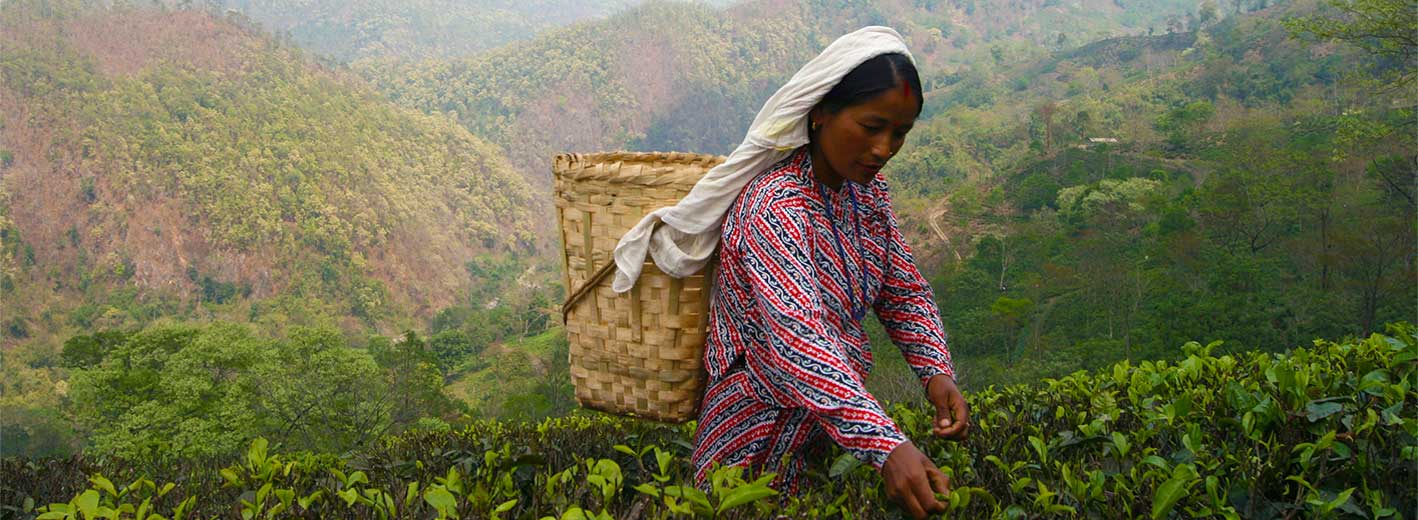Our Tea Story
In The Beginning
The history of the Prakash family is closely intertwined with that of the tea plantations in India. When the East India Company's monopoly of the Chinese tea trade drew to a close in the early nineteenth century, the need for developing an alternate source of tea supply within the British Empire was recognised. Lord William Bentick, the Governor General at that time, was entrusted with this vital task and soon the Indian tea industry was born.

Starting a Legacy
One of the first areas found to be suitable for tea plantations was the Doon Valley, nestled in the foothills of the Himalayas - which also happened to be the ancestral home of the Prakash family. Lala Darshanlal, the patriarch of the family, started his career as a small tea planter under the British management. Over the years, he picked up the requisite expertise to grow and process all varieties of tea. By the time India gained independence in 1947, he was elected as the chairman of a company called East Hope Town. This was a token of the esteem in which the British held his planting abilities. Over the next twenty years there was no looking back.
He acquired prized tea properties in the premium tea plantation areas across India. This included Assam, Darjeeling, Dooars, Terai, Himachal, South India and, of course, Dehra Dun. However in spite of his pioneering success Lala Darshanlal had a very discrete philosophy...
"I never had any desire to be the biggest in the business - merely the best" Lala Darshanlal
With his expertise in all aspects of tea cultivation - starting from the selection of the right clone for a specific soil and climatic condition to the plucking and pruning of the tea bushes and his technical knowledge of tea processing – the Chaiwala family soon gained a reputation as producers of the best quality tea. Glenburn endeavors to reach out to tea lovers across the globe. In their hometown of Dehra Dun, the family had become so closely associated with the tea industry that even today after they migrated to other parts of the country, the third generation patriarch proclaims..."We are better known there as the 'Chaiwala' family, which in the local language means Tea Planters."– Sudhir PrakashBy the 1960s, the Chaiwala family as a single business unit was producing over 10 million kgs of Indian tea. Over the years, the family grew, and their properties were divided amongst the subsequent generations of enthusiastic tea planters. Some of the original tea estates were sold, and promising new ones were acquired.



The Family Today
Khongea Tea Estate, Assam and Glenburn Tea Estate, Darjeeling are currently owned and managed by Lala Darshanlal's grandson Sudhir Prakash and his family. Sudhir Prakash is a well-known and respected member of the Indian tea industry and has recently retired from the post of Chairman of the prestigious Tea Research Association. The other family members actively involved in the tea business are Anshuman (his son), Sidhant (his nephew), Radhika (his sister-in-law) and Husna-Tara (his daughter-in-law) who recently introduced the concept of "Tea Tourism" to the family business model. Opened in 2002, theGlenburn Tea Estate Boutique Hotelhas been rated as one of the best 101 HOTELS OF THE WORLD by The Tatler Travel Guide and has been written about in numerous international publications including Conde Nast Traveller. All the members of the Prakash family are passionate about tea: it is a way of life for them, a way of life that they have grown to love.
“From our bushes to your doorstep ... Our priority today is to find the fastestpossible route to get you the freshest possible tea."Anshuman Prakash


